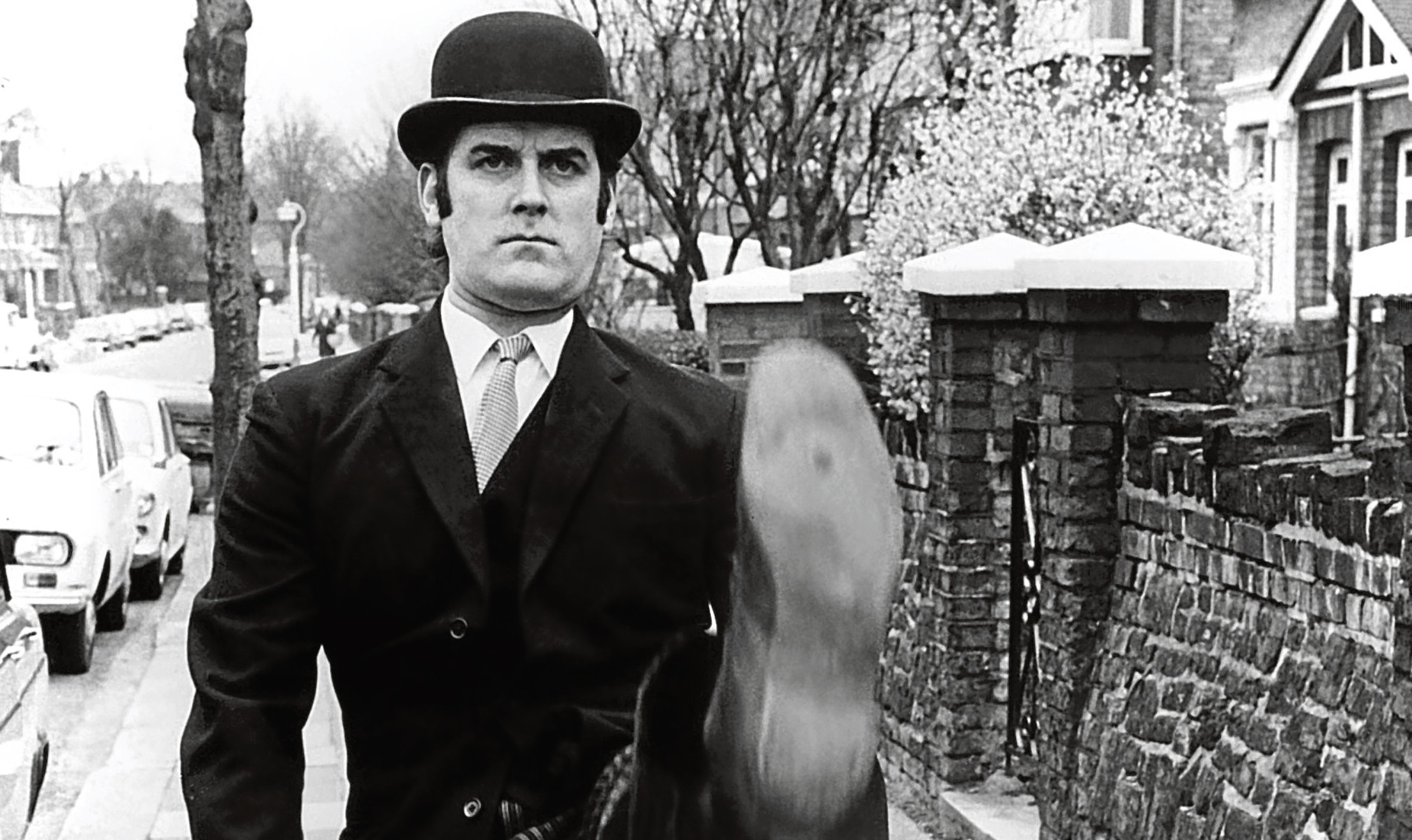Well, lookee here. The Ministry of Silly Talks is at it again.
The once-revered John Cleese, noted latterly more for his rants against everything from former wives to football than for his zanily witty insights into surrealist comedy, has taken speech in hand again this week.
He has stoutly denounced members of the Caledonian diaspora, the Spectator’s Fraser Nelson in particular, supposedly inhabiting the jobs that rightly belong to indigenous English people in the influential world that is the British media, as being “half-educated tenement Scots”.
Racism or just rudeness? Stupid or snobbish, or both?
Granted, it can certainly be argued that the Scottish education system, once the envy of the world, is not what it was.
But that is not a problem limited to this little corner of the nation, I would surmise, if the recent promises of one Mrs Theresa May to return grammar schools to the array of educational choices on offer south of the border are anything to go by.
Nice tenements
As for tenements, many of us have lived in them – and still do – and have lived to tell the tale.
Hint: not all tenements are dilapidated single-ends in the East End of Glasgow with eight to a bed and porridge in a drawer.
Some (whisper it), are so commodious and packed with good design and original features that if transplanted to the leafy boulevards of Central London, they would command prices that only an oligarch could contemplate with equanimity.
It is a little strong to refer, somewhat sentimentally, to this particular building style as “vertical villages” or “stairways to heaven”.
However, to use it as a blanket pejorative says more about the person who uses it thus than it does about those who experience life in a close or pletty.
And I for one, challenging though getting on with your neighbours or surrounding community may be at times, would proffer the suggestion that communal living and a bit of give-and-take could often be preferable to living quaking behind the railings of a “safe” gated estate.
As for the Scots element of the equation, I suppose we should be grateful that Mr Cleese chose to call them that, rather than uppity Jocks or chippy haggis hurlers.
Although according to an Ofcom survey, “Jocks” is a term which has now been demoted to being “of limited concern” where national identity-based slurs are concerned, taking its honoured place alongside Nazi and Hun. Good company.
Taff, on the other hand, as a term of endearment for the Welsh, is apparently to be taken much more seriously as a politically incorrect insult.
Don’t tell Jeremy Clarkson, for goodness’ sake. Or John Cleese. Heaven knows what he might say about Huw Edwards.
Mr Cleese, for all his pontificating, is not the Messiah, after all. On this showing, he’s a very naughty boy.
One feels like stooping to the same childish level and mis-quoting his own creations, the Knights who say “Ni”-ckers to you.
Or, using the dialect vernacular that, according to yet another survey, is apparently quickly dying out: “Awa an’ bile yer heid, ye big shilpit dreep. Ye ken hee-haw.”
One would surmise from all this that minds can be just as closed and outlooks as limited within the confines of a sprawling mansion or a prime example of semi-detached suburbia as in the much-maligned tenement or council scheme.
But really, when you look at it in context, it’s just yet another example of the continuing British obsession with where you come from – and that, still, even in the 21st Century, for British citizens, largely means the class you were born into.
Not for nothing has social mobility all but stalled in this country in recent years. It’s still about where you come from rather than what you can do, or whether you can do it well.
Terrible when people don’t know their place, though, isn’t it? And stay in it.
That’s mirrored, too, in the post-Brexit vote spotlight being turned on those who have come here to live – and work – from other countries.
Foreign doctors being replaced by “homegrown talent?” In what time-scale? Imagine all those well-qualified practitioners wanting to come here and work long hours to help people get better and be paid properly for it. How very dare they.
Inventories of overseas workers and tests to be put in places for employers or educationalists to weed out the undeserving? And they said that coming out of the EU would mean less bureaucracy and administration.
Nationalism
National pride is one thing. Narrow nationalism narrowly applied is another.
You don’t have to be a rampant SNP member to feel that it’s coming a bit strong from a politician who was quicker than Usain Bolt to jump on the Leave bandwagon, to talk about “divisive nationalists”.
But there you go. One woman’s divisive nationalist is another’s IndyRef supporter. Or Brexit voter.
Some people have always been able to rise above their roots. It’s just a pity that, at the moment, more of those who like telling the rest of us what to do seem determined to live down to their reputations.
